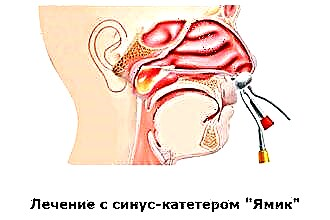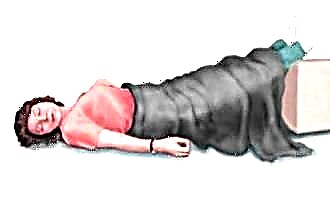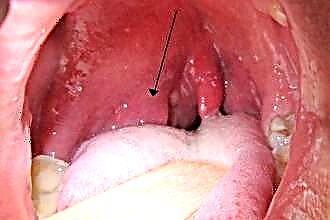It is very easy to confuse an allergic cough in a child with a common cold. The baby also has snot flowing, breathing is difficult, he is constantly naughty, does not sleep well at night. Skin rashes or spots on the body can be a good clue, but they do not always appear. To understand in time that a child has an allergy is sometimes vital. Since a long-term strong cough can lead to quite serious consequences.
Causes and main symptoms
 It is much more difficult to recognize an allergic cough in a child than in an adult. Especially in babies. This is due primarily to the fact that the mucous membranes of the respiratory tract in young children are very delicate and, when exposed to any irritants (not necessarily allergens), immediately react with copious secretion of mucus. That is why a runny nose and wet cough in infants is not uncommon.
It is much more difficult to recognize an allergic cough in a child than in an adult. Especially in babies. This is due primarily to the fact that the mucous membranes of the respiratory tract in young children are very delicate and, when exposed to any irritants (not necessarily allergens), immediately react with copious secretion of mucus. That is why a runny nose and wet cough in infants is not uncommon.
There is more than one reason that can cause an allergic cough in a child. There are so many of them that it is simply unrealistic to list them all. Allergens can be animals, household chemicals, clothes, toys, bedding, dust, pollen, bee products, odors, food and even dishes.
What symptoms are necessary and sufficient to make sure that cough and other respiratory manifestations are of an allergic nature? Here are the most basic signs of allergies to watch out for:
- The cough is paroxysmal in nature: it suddenly begins and just as suddenly ends (if it does not entail severe swelling).
- The cough is dry and sharp, there is practically no phlegm and nothing is coughing up.
- The cough is accompanied by copious, clear, watery nasal discharge (unlike a common runny nose), and tears may flow.
- The cough occurs in repetitive situations or subsides, and after a while it starts again.
- The cough goes away within a very short time after taking antihistamines.
If at least two or three of the listed symptoms are present at the same time, then with almost one hundred percent certainty it can be argued that the child has an allergy.
Effective treatment
 Treating an allergic cough in a child needs to be completely different from a usual one. Only antihistamines can help here. These are drugs that slow down the exchange of histamine in the body, which is responsible for the occurrence of an allergic reaction, which manifests itself in different ways in each case. And they remove not the signs, but the cause of the allergy - by neutralizing the so-called mast cells. And after a short time, the symptoms themselves disappear: cough, runny nose, shortness of breath, swelling, skin rashes, etc.
Treating an allergic cough in a child needs to be completely different from a usual one. Only antihistamines can help here. These are drugs that slow down the exchange of histamine in the body, which is responsible for the occurrence of an allergic reaction, which manifests itself in different ways in each case. And they remove not the signs, but the cause of the allergy - by neutralizing the so-called mast cells. And after a short time, the symptoms themselves disappear: cough, runny nose, shortness of breath, swelling, skin rashes, etc.
It is dangerous to independently select such funds for long-term use, as well as using drugs intended for adults for children. Some of these can cause severe side effects. But modern children's antihistamines are practically safe, have a quick and powerful effect, eliminating all unpleasant symptoms at once.
The most effective drugs are:
- "Suprastin" - acts very quickly, allows you to stop a coughing attack and relieve swelling in just a few minutes. But it is not suitable for long-term use, as it has a number of side effects: dry mucous membranes, drowsiness, slight tachycardia and urinary retention are possible. Ideal as an ambulance drug.
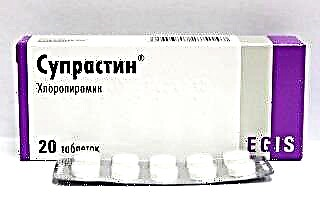 "Tavegil" is a universal drug that is prescribed for children of any age. Begins to act actively in about an hour after ingestion. The effect lasts up to 12 hours. Does not cause drowsiness, has almost no contraindications.
"Tavegil" is a universal drug that is prescribed for children of any age. Begins to act actively in about an hour after ingestion. The effect lasts up to 12 hours. Does not cause drowsiness, has almost no contraindications.- Diazolin has a weaker antihistamine effect. Well removes seasonal allergic cough, can be recommended for long-term use. For the smallest it is produced in the form of a suspension, for older children - in the form of a dragee with a sweet shell.
- "Ketotifen" - can be used for children from six months and older. The correct dosage is calculated based on the age and weight of the child. Able to stop even an attack of bronchial asthma. It can be used for a long time. The effect of drowsiness is not very pronounced.
- "Peritol" is an effective and very fast-acting agent that has strong sedative properties. Perfectly helps in cases when the child has a persistent allergic cough at night. Relieves almost all allergy symptoms - skin and respiratory.
- "Fenkarol" is an absolutely safe antiallergic drug that does not cause drowsiness. Its distinctive property is that it not only does not negatively affect the work of the heart, but, on the contrary, helps to reduce arrhythmias, which can be caused by a strong attack of coughing.
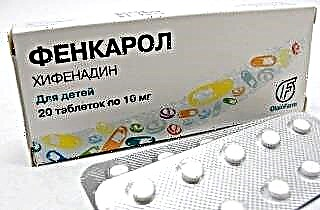 "Cetirizine" - also perfectly relieves even a very strong wet cough. Contains components that dramatically reduce bronchial hyperactivity. It is not addictive, with prolonged use the effect does not decrease. There is a slight drowsiness, but in general it is well tolerated even by infants.
"Cetirizine" - also perfectly relieves even a very strong wet cough. Contains components that dramatically reduce bronchial hyperactivity. It is not addictive, with prolonged use the effect does not decrease. There is a slight drowsiness, but in general it is well tolerated even by infants.
Of course, this is not a complete list of medicines that can be prescribed to your baby. It makes no sense to give the entire list because each of the drugs has its own characteristics of use. Therefore, an experienced pediatrician or an allergist should prescribe such medications.
Self-medication can quickly render the medication useless and the harm from side effects significant.
Folk remedies
 If the manifestations of allergies are not too strong, and the cough is not painful, then you can try to treat the child with folk remedies. They are time-tested and absolutely safe, but in order to obtain a lasting result, they must be used regularly for some time.
If the manifestations of allergies are not too strong, and the cough is not painful, then you can try to treat the child with folk remedies. They are time-tested and absolutely safe, but in order to obtain a lasting result, they must be used regularly for some time.
Here are some of the simplest and most reliable tools:
- Gargling with a warm decoction of medicinal plants, which include azulene, which relieves allergies: chamomile, St. John's wort, yarrow, eucalyptus. These same herbs can be used for inhalation.
- Inhalation over mashed potatoes, to which it is good to add a few drops of eucalyptus or fir essential oil. Its duration should be up to 10 minutes, it is better to do it at night.
- Chamomile tea with lemon relieves even the most severe allergic cough in just a few minutes. Pour a tablespoon of chamomile and a teaspoon of black tea with boiling water in a thermos, leave for 30-40 minutes, add a slice of lemon and drink in slow sips.
 Ginger milk. Great for those children who have an allergic cough mostly at night. Add a few slices of thinly chopped ginger root to a glass of milk, bring to a boil over low heat, boil for 3-5 minutes, take out the ginger, and drink milk in warm small sips while lying in bed. You can add a little honey if you are not allergic to it either.
Ginger milk. Great for those children who have an allergic cough mostly at night. Add a few slices of thinly chopped ginger root to a glass of milk, bring to a boil over low heat, boil for 3-5 minutes, take out the ginger, and drink milk in warm small sips while lying in bed. You can add a little honey if you are not allergic to it either.
If you wish, it is easy to find on the Internet many other folk remedies, before using which it is better to consult a doctor.
They must be selected individually, not forgetting that only a good antihistamine, which should always be at hand, can very quickly relieve a coughing attack.
Prophylaxis
 To prevent not only coughing, but also all other unpleasant symptoms that manifest an allergy, first of all, it is necessary to provide correct and regular childcare.This is especially important for babies. Their nasal passages are so narrow that they cannot clear out on their own. And if even ordinary house dust accumulates in them, it can cause the development of allergies.
To prevent not only coughing, but also all other unpleasant symptoms that manifest an allergy, first of all, it is necessary to provide correct and regular childcare.This is especially important for babies. Their nasal passages are so narrow that they cannot clear out on their own. And if even ordinary house dust accumulates in them, it can cause the development of allergies.
In addition, the cosmetics used to care for the baby should be as natural as possible and intended exclusively for children. But that's not all.
Allergies in a child can be caused by extracts of some very useful herbs: chamomile, calendula, etc. Therefore, pay attention to the composition of natural remedies. Individual components may not be suitable for the child.
Other precautions will also be good prevention of any manifestations of allergies in children:
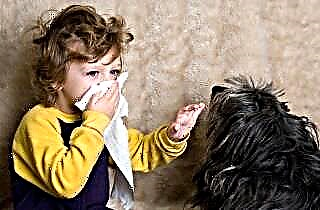 Children's clothing should only be made of natural fabrics - it is hypoallergenic, does not irritate the skin and is breathable. It should be washed separately from adult things and only with a specially created powder or ordinary baby soap. When buying, try to avoid neon shades and colors that are too intense - bright dyes can contain harmful chemical components.
Children's clothing should only be made of natural fabrics - it is hypoallergenic, does not irritate the skin and is breathable. It should be washed separately from adult things and only with a specially created powder or ordinary baby soap. When buying, try to avoid neon shades and colors that are too intense - bright dyes can contain harmful chemical components.- A strong allergic reaction, including a cough (especially at night), can be caused by low-quality plastic, from which unscrupulous manufacturers make dishes, toys and other things for children. The kid usually pulls everything into his mouth and chemical compounds, so they can get into the body even from things that are not intended for food. Therefore, if you are not sure about the manufacturer, ask the seller for a quality certificate for baby products.
- This is great when the child grows up with pets. But, unfortunately, they also often cause allergies. If it turns out that a child's cough is caused by wool flying around the apartment, the smell from the toilet or food and other reasons directly related to the animal, then first you need to thoroughly clean the room and limit their communication. If the allergy symptoms do not disappear after that, you will have to part with the animal.
 It is very important to provide your child with a quality night's sleep on a bed made of natural fabrics - linen or cotton. Fortunately, down and feather pillows are practically out of use, but low-quality silicone filler can cause severe allergic coughs at night or during daytime sleep. You should not buy blankets made of natural wool for small children, even very high quality ones. All the same, getting the smallest villi into the nose during breathing cannot be avoided, they accumulate in the bronchi and over time the first symptoms of allergy appear.
It is very important to provide your child with a quality night's sleep on a bed made of natural fabrics - linen or cotton. Fortunately, down and feather pillows are practically out of use, but low-quality silicone filler can cause severe allergic coughs at night or during daytime sleep. You should not buy blankets made of natural wool for small children, even very high quality ones. All the same, getting the smallest villi into the nose during breathing cannot be avoided, they accumulate in the bronchi and over time the first symptoms of allergy appear.- In spring and summer, during long walks, it is better to avoid places of abundant flowering of plants. The smell of freshly cut grass can cause allergic cough and rhinitis in children. Better to walk along the alleys of the park or square, play in the playground. But even if seasonal allergies are present, you cannot completely refuse to walk. Then you will have to give the baby antihistamines for children before going outside.
And most importantly, carefully monitor the child's health. The sooner the mother is able to recognize an allergic cough, the less the risk that it will become chronic, gradually transforming into more serious diseases.
If you are not completely sure whether an allergy has caused a cough or a cold, it is better to consult a doctor.

 "Tavegil" is a universal drug that is prescribed for children of any age. Begins to act actively in about an hour after ingestion. The effect lasts up to 12 hours. Does not cause drowsiness, has almost no contraindications.
"Tavegil" is a universal drug that is prescribed for children of any age. Begins to act actively in about an hour after ingestion. The effect lasts up to 12 hours. Does not cause drowsiness, has almost no contraindications. "Cetirizine" - also perfectly relieves even a very strong wet cough. Contains components that dramatically reduce bronchial hyperactivity. It is not addictive, with prolonged use the effect does not decrease. There is a slight drowsiness, but in general it is well tolerated even by infants.
"Cetirizine" - also perfectly relieves even a very strong wet cough. Contains components that dramatically reduce bronchial hyperactivity. It is not addictive, with prolonged use the effect does not decrease. There is a slight drowsiness, but in general it is well tolerated even by infants. Ginger milk. Great for those children who have an allergic cough mostly at night. Add a few slices of thinly chopped ginger root to a glass of milk, bring to a boil over low heat, boil for 3-5 minutes, take out the ginger, and drink milk in warm small sips while lying in bed. You can add a little honey if you are not allergic to it either.
Ginger milk. Great for those children who have an allergic cough mostly at night. Add a few slices of thinly chopped ginger root to a glass of milk, bring to a boil over low heat, boil for 3-5 minutes, take out the ginger, and drink milk in warm small sips while lying in bed. You can add a little honey if you are not allergic to it either. Children's clothing should only be made of natural fabrics - it is hypoallergenic, does not irritate the skin and is breathable. It should be washed separately from adult things and only with a specially created powder or ordinary baby soap. When buying, try to avoid neon shades and colors that are too intense - bright dyes can contain harmful chemical components.
Children's clothing should only be made of natural fabrics - it is hypoallergenic, does not irritate the skin and is breathable. It should be washed separately from adult things and only with a specially created powder or ordinary baby soap. When buying, try to avoid neon shades and colors that are too intense - bright dyes can contain harmful chemical components. It is very important to provide your child with a quality night's sleep on a bed made of natural fabrics - linen or cotton. Fortunately, down and feather pillows are practically out of use, but low-quality silicone filler can cause severe allergic coughs at night or during daytime sleep. You should not buy blankets made of natural wool for small children, even very high quality ones. All the same, getting the smallest villi into the nose during breathing cannot be avoided, they accumulate in the bronchi and over time the first symptoms of allergy appear.
It is very important to provide your child with a quality night's sleep on a bed made of natural fabrics - linen or cotton. Fortunately, down and feather pillows are practically out of use, but low-quality silicone filler can cause severe allergic coughs at night or during daytime sleep. You should not buy blankets made of natural wool for small children, even very high quality ones. All the same, getting the smallest villi into the nose during breathing cannot be avoided, they accumulate in the bronchi and over time the first symptoms of allergy appear.